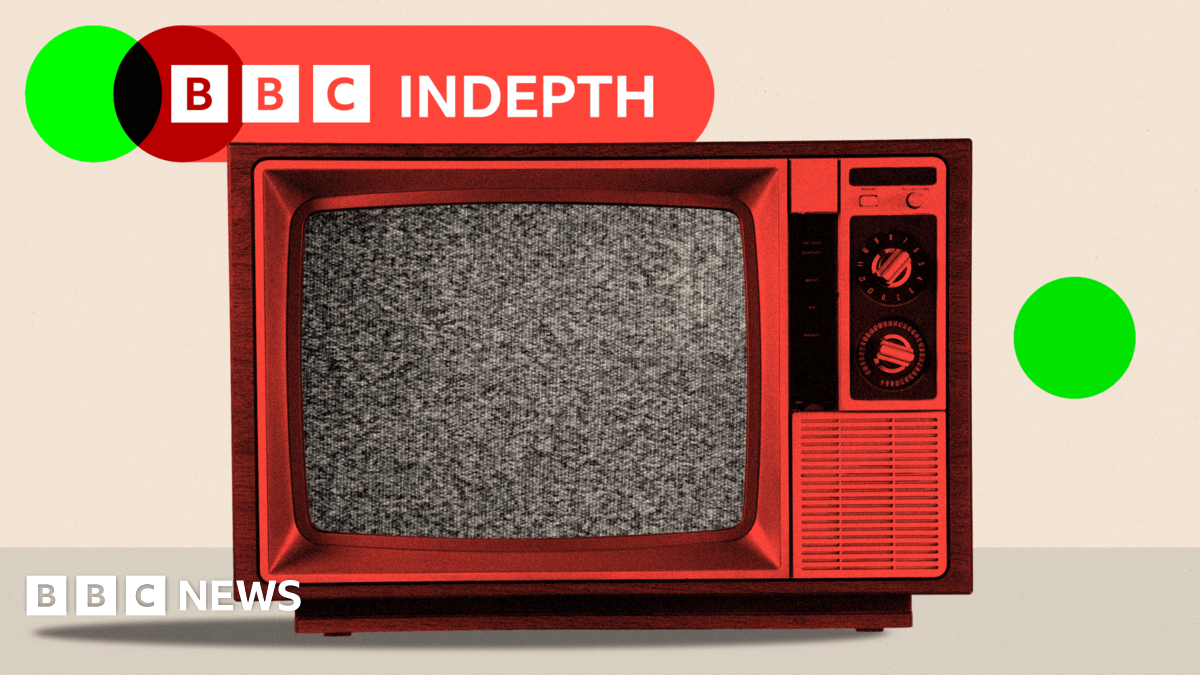How Will Traditional British Television Adapt To The Streaming Era?

Welcome to your ultimate source for breaking news, trending updates, and in-depth stories from around the world. Whether it's politics, technology, entertainment, sports, or lifestyle, we bring you real-time updates that keep you informed and ahead of the curve.
Our team works tirelessly to ensure you never miss a moment. From the latest developments in global events to the most talked-about topics on social media, our news platform is designed to deliver accurate and timely information, all in one place.
Stay in the know and join thousands of readers who trust us for reliable, up-to-date content. Explore our expertly curated articles and dive deeper into the stories that matter to you. Visit Best Website now and be part of the conversation. Don't miss out on the headlines that shape our world!
Table of Contents
How Will Traditional British Television Adapt to the Streaming Era?
The rise of streaming giants like Netflix, Amazon Prime Video, and Disney+ has undeniably shaken the foundations of traditional British television. For decades, the BBC, ITV, and Channel 4 dominated the landscape, shaping national culture and defining viewing habits. But in a world of on-demand content and global competition, how will these established broadcasters adapt and survive? The answer, it seems, is a multifaceted strategy involving innovation, collaboration, and a willingness to embrace change.
<h3>The Streaming Challenge: More Than Just Competition</h3>
The challenge isn't simply about competing for viewers; it's about fundamentally altering how content is created, distributed, and monetized. Streaming services offer viewers unparalleled choice, binge-watching capabilities, and a curated experience often lacking in traditional linear television schedules. This shift has led to a decline in linear TV viewership, particularly among younger demographics who have grown up with streaming as their primary entertainment source. The impact is clear: advertising revenue, a cornerstone of commercial broadcasters' income, is shrinking.
<h3>Adapting to the New Landscape: Key Strategies</h3>
British broadcasters are responding in several key ways:
-
Investing in their own streaming platforms: The BBC iPlayer has become a crucial element of the BBC's strategy, offering a vast library of on-demand content, including BBC exclusives and popular international acquisitions. ITV Hub and All 4 (Channel 4's platform) are also attempting to compete, though they face an uphill battle against the established global players. This investment highlights the crucial need for broadcasters to control their own distribution channels.
-
Producing high-quality original content: To attract and retain viewers, traditional broadcasters are doubling down on creating original, high-quality programming. This includes investing in both large-scale productions and smaller, niche shows aimed at specific demographics. This strategy mirrors the successful models employed by Netflix and other streaming giants.
-
Embracing hybrid models: The future likely lies in a hybrid approach. While maintaining their linear channels, broadcasters are increasingly using them as promotional vehicles for their streaming platforms, creating a symbiotic relationship between the two. This means viewers might discover new shows on linear TV and then stream entire seasons on demand.
-
Exploring partnerships and collaborations: The power of collaboration should not be underestimated. Partnerships with international production companies and streaming services allow broadcasters to access new markets and co-produce ambitious projects they might not be able to afford independently. This approach opens doors for greater reach and shared resources.
-
Focusing on unique British storytelling: British television has always boasted a strong reputation for quality drama and unique storytelling. By leaning into this strength and focusing on productions that resonate with a global audience, broadcasters can differentiate themselves from the international competition. This preservation of a distinct national identity will be crucial.
<h3>The Future of British Television: A Cautiously Optimistic Outlook</h3>
The future of traditional British television is certainly uncertain, but not bleak. By embracing innovation, focusing on quality content, and strategically leveraging their strengths, these established broadcasters have the potential to thrive in the streaming era. The key lies in their ability to adapt quickly, invest wisely, and understand the evolving needs and preferences of their audience. The competition is fierce, but British television's legacy of storytelling and its unique cultural identity offer a strong foundation for future success. It's a story still unfolding, and it will be fascinating to watch how it plays out.
Further Reading:
Call to Action: What are your thoughts on the future of British television? Share your predictions in the comments below!

Thank you for visiting our website, your trusted source for the latest updates and in-depth coverage on How Will Traditional British Television Adapt To The Streaming Era?. We're committed to keeping you informed with timely and accurate information to meet your curiosity and needs.
If you have any questions, suggestions, or feedback, we'd love to hear from you. Your insights are valuable to us and help us improve to serve you better. Feel free to reach out through our contact page.
Don't forget to bookmark our website and check back regularly for the latest headlines and trending topics. See you next time, and thank you for being part of our growing community!
Featured Posts
-
 Nbas Most Unbreakable Record David Adelmans Unique Achievement
May 15, 2025
Nbas Most Unbreakable Record David Adelmans Unique Achievement
May 15, 2025 -
 Billy Idol And Joan Jett Concert A Night Of Rock N Roll History
May 15, 2025
Billy Idol And Joan Jett Concert A Night Of Rock N Roll History
May 15, 2025 -
 Family Swim In Contaminated Rock Creek Rfk Jr Disregards Bacteria Warnings
May 15, 2025
Family Swim In Contaminated Rock Creek Rfk Jr Disregards Bacteria Warnings
May 15, 2025 -
 Red Soxs Unbelievable Outfield Assist Denies Home Run
May 15, 2025
Red Soxs Unbelievable Outfield Assist Denies Home Run
May 15, 2025 -
 Diddys Alleged Assault Casandra Venturas Tearful Testimony Details Humiliation
May 15, 2025
Diddys Alleged Assault Casandra Venturas Tearful Testimony Details Humiliation
May 15, 2025
Latest Posts
-
 Deodorant Recall Alert 67 000 Units Recalled Across Walmart Dollar Tree Amazon
Jul 17, 2025
Deodorant Recall Alert 67 000 Units Recalled Across Walmart Dollar Tree Amazon
Jul 17, 2025 -
 Life After Love Island Usa Amaya And Bryans Relationship Update
Jul 17, 2025
Life After Love Island Usa Amaya And Bryans Relationship Update
Jul 17, 2025 -
 September 2025 Ynw Melly Faces Retrial In Double Homicide Case
Jul 17, 2025
September 2025 Ynw Melly Faces Retrial In Double Homicide Case
Jul 17, 2025 -
 Love Island Usas Amaya And Bryan Building A Future Beyond The Villa
Jul 17, 2025
Love Island Usas Amaya And Bryan Building A Future Beyond The Villa
Jul 17, 2025 -
 September Retrial For Ynw Melly On Murder Charges After Jury Fails To Reach Verdict
Jul 17, 2025
September Retrial For Ynw Melly On Murder Charges After Jury Fails To Reach Verdict
Jul 17, 2025
